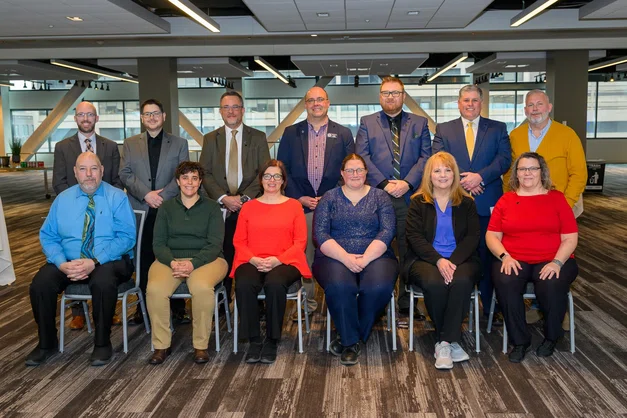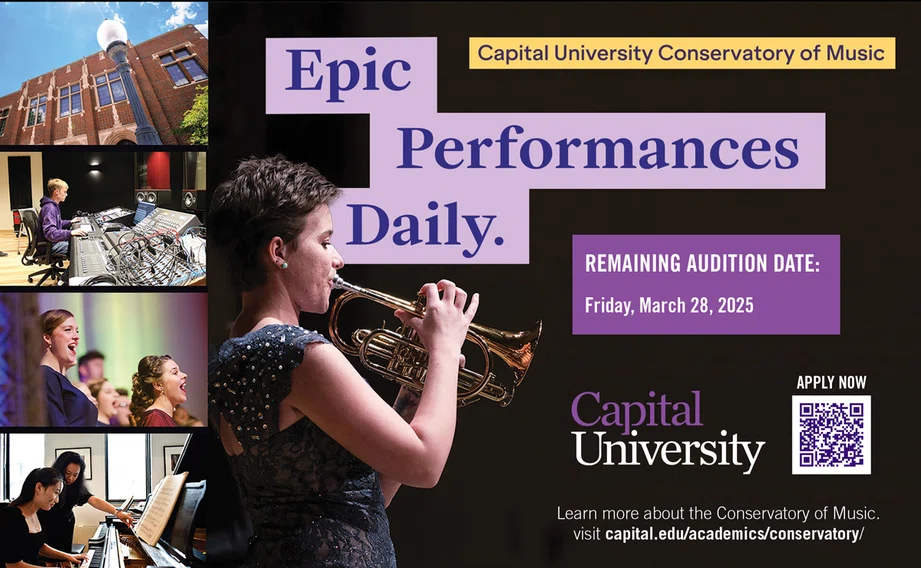©2025 Ohio Music Education Association




Rohit Kolluri,
The Ohio State University
The journey from becoming a good teacher to a great one revolves around many factors. What is it that allows a good teacher to become a great teacher? In a previous research study, I examined this journey for high school band directors. After finishing the study, I wondered what factors contribute to the making of a good middle band school director. Are they similar or different? If similar, how alike are they? To answer these questions, I embarked on a new project to understand how local master teachers develop their attitudes and beliefs. This time, the focus was on middle school band directors. After revising my interview protocol, I interviewed ten middle school band directors in Central Ohio. I asked each of them about their mentors, life experiences, delivering instruction to students, and other factors that influenced their philosophies.
Common Mentors
Common Mentors
Future teachers can gain valuable insight into professional practices by observing individuals around them such as music teachers, non-music teachers, or friends and family members. It was educational to learn about the impact of students on teachers’ values, attitudes, and beliefs. Talented and hardworking students inspire teachers to set higher goals, while students who struggle keep teachers committed to their work. In my conversations with directors, they classified mentorship into three groups: 1) music mentors in grade school, 2) mentors in college and professional life and 3) family members.
Most teachers interviewed mentioned their high school or middle school band directors as influential mentors. Many of these directors also shared common mentors in college, such as conductors of ensembles and music education professors.
Mentorship can extend beyond the realm of music. I asked each director to share the name of a non-music teacher and what they learned from this teacher/educator. The common theme from my conversations with them was that one must have a vision for one’s classroom. Other common ideas were having a career plan and creating a proper environment conducive to learning and teaching. These insights from mentors, both within and outside music, significantly influence how teachers approach their instructional practices.
In Practice: Delivering Instruction
In Practice: Delivering Instruction
Instructional delivery at the middle school level differs significantly from high school. Instruction is often centered around one topic at a time and broken into many segments. Middle school programs lay the foundation for high school success, making it crucial to teach fundamentals correctly and sequentially. The directors emphasized that students need to feel connected with their teacher to achieve a greater sense of community and a more engaged learning experience. Teachers must lead with empathy and be willing to meet the students where they are.
For beginners, a methodical approach is essential. Concepts must be broken down into smaller pieces. It is important to monitor students carefully but also allow them to develop independent problem-solving skills. This idea follows Duke’s method of successive approximations where complex concepts are broken down into smaller, more manageable segments.
“Middle school is a floating target” noted Ryan Alexis of Worthington Kilbourne MS. “Every ensemble has a different personality and needs. Every day dictates the lesson plan”. High school music education is often more centralized. Middle school music education is dynamic, and teachers need to be adaptable to each ensemble. Goals should be set based on what is appropriate for each group and be adaptable to student progress. With beginners, the goals tend to be more step by step while 7th and 8th Grade students may focus on broader concepts like intonation and articulation in specific pieces. A long-term lesson plan should be made but tweaked to fit the needs of the students.
Connecting with students
Connecting with students
Establishing a connection with students early on is crucial. “Students, especially young kids, will not buy into music if they do not see that you are passionate” (Jonathon Bradshaw, Gahanna MS South). Middle school band directors need to maintain an open and approachable personality with students. One effective strategy is to sit in and playing with the kids during class, demonstrating a shared love for music making.
Demonstrating passion for making music is another way to get students excited for class. By making the learning experience enjoyable, students can see that teachers genuinely love teaching. Teachers must signify the importance of trying to make the ensemble’s best work even better. “Always try to emphasize that it is because of students’ improvement, we push them to get better, to grow, and hold them to a high standard” (Jacob Henry, Olentangy Hyatts MS).
Conclusion
Conclusion
My final question to these teachers was, “If your current self could teach something your first-year professional self, what would it be?”. Their responses reflected their personal experiences and hard-earned wisdom. As teachers, we are always learning. With experience we learn how to be better versions of ourselves, communicate better, and teach better. It is vital to show ourselves grace as we continue to grow into the profession. It is essential to be our own selves and let kids see the true us. Similarly, it is important to let each ensemble be its own and not compare it to other programs.
Another common theme found is to have patience with younger students. It is fundamental not to assert authority too much. A teacher should listen to the kids first and not jump to conclusions. Students often have a lot going on in their lives outside of school. It is important not to take it personally if they decide to quit the program.
Lastly, mentorship is critical to the advancement of our field, regardless of the grades taught. It is crucial to ask colleagues for help. Mentor-mentee relationships can form naturally. People are drawn to others whom they aspire to emulate. As we grow in our profession, it is our responsibility to provide mentorship to the next generation. As music educators, mentorship can be found in all contexts of life. Mentorship is a life skill, not just a teaching skill. By embracing mentorship as a life-long journey of giving and receiving guidance, we ensure the continued growth and vitality of music education for the current generation and for future teachers.
Teachers Interviewed:
Jacob Henry, Band Director – Olentangy Hyatts MS
Nicole Brocke, Band Director – Hilliard Tharp 6th Grade School
Justin Hennig, Band Director – Canaan MS (Plain City)
Brian Coon, Band Director – New Albany MS
Jon Parker-Jones, Band Director – Jones MS (Upper Arlington)
Wendy Reeves, Band Director – John Sells MS (Dublin)
Jonathon Bradshaw, Band Director – Gahanna MS South
Ryan Alexis, Band Director – Worthington Kilbourne MS
Tracie Parulekar – Harmon MS (Pickerington)
John Laswell – Minerva Park MS (Westerville)
Advisor of Study: David M. Hedgecoth, PhD
Rohit Kolluri is a student pursuing dual degrees in Music Education and Marketing at The Ohio State University. As a clarinetist, he has performed with ensembles such as the OSU Symphony Orchestra and Wind Symphony, while also serving many leadership roles such as President of the School of Music Double Major Alliance. Rohit has gained valuable experience teaching clarinet and woodwind students across multiple school districts; he also works as an Undergraduate Teaching Assistant at the Fisher College of Business. Passionate about merging music and business, he hopes to create an innovative program that fosters positive impacts in the music community.





